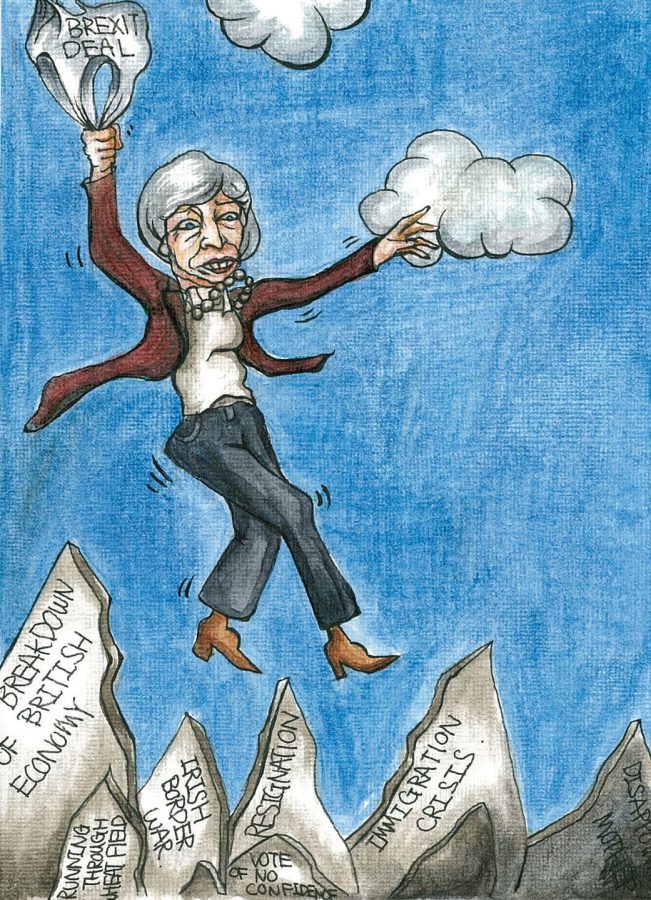Crisis Erupts Ahead of Brexit Deal
Division and uncertainty racked the United Kingdom last week in reaction to the resignations of important cabinet ministers who were unsatisfied with the Brexit deal drafted by Prime Minister Theresa May.
On Thursday morning, November 15, Dominic Raab, secretary of state for exiting the European Union (EU), quit the cabinet. According to Politico, Raab admitted that he could not support the terms of the UK’s settlement with the EU “in good conscience.” An hour later, Esther McVey, secretary of state for work and pensions, also resigned in protest. She cited concerns about a lack of control over money, law, borders, and trade policy under May’s deal. In her resignation letter, McVey wrote, “We have gone from no deal is better than a bad deal, to any deal is better than no deal.”
A series of resignations by junior ministers and calls from May’s own party to withdraw from the deal followed. According to The Guardian, Brexit conservatives, emboldened by Raab’s departure, said that they will vote the agreement down when it comes time for ratification in December. If May cannot persuade ministers from Parliament to support her deal, Britain could withdraw from the EU with no deal at all.
Despite many politicians’ public criticisms of the deal, May claims that the current deal is the best one that Britain has. She said, “We can choose to leave with no deal. We can risk no Brexit at all. Or we can choose to unite and support the best deal that can be negotiated. This deal.”
Disapproval of the Prime Minister is high, both within her own party and among the opposition. According to The Independent, only 30 percent of UK adults said that they are satisfied with May’s performance as prime minister, while fewer than 20 percent said that they were satisfied with the Tory government as a whole. Ultimately, her leadership will be challenged if 48 of her own party’s backbenchers — members of Parliament (MPs) who do not hold office in the government — write letters of no confidence expressing dissatisfaction with May as party leader. Currently, five MPs have disclosed publicly that they have written letters. If the threshold of 48 is reached, May would face a vote and need a simple majority to remain in power. The opposition party has said that May has no authority over her own party. MP Ian Blackford said, “With ministers falling like dominoes, it’s clear the prime minister lacks the confidence of her cabinet — and has no hope of commanding a majority in Parliament for her bad Brexit deal.”
However, there has been a recent swing in May’s favor, because the government cannot afford to withdraw from the EU without a deal. If it did, all businesses and consumers in the UK would have to revert to World Trade Organization rules on trade. Britain would no longer be bound by EU rules, so it would face tariffs from other EU countries. Immigration would also be affected, as British citizens who could previously live and work in the EU without a visa would no long be able to do so.
On campus, many community members have joined the discussion. Mr. Sam Crimmins, instructor in economics, said, “Economic growth in the UK has fallen relative to other high-performing economies [after] the Brexit referendum, which is primarily being driven by a decline in investment on the part of companies who are wary of the effect of leaving the EU.”
Additionally, Mr. Greg Lock, a British citizen and instructor in photography, said, “Brexit is harmful and an awful shame. It stinks of nationalism and xenophobia and it is clear that the British public were conned into voting for it by unscrupulous political liars.”






